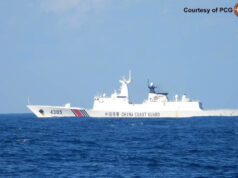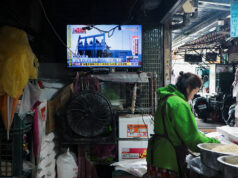LTFRB: Uber operations until April 15
By Patrizia Paola C. Marcelo, Reporter
The Land Transportation Franchising and Regulatory Board said Uber Philippines (Uber Systems Inc)’s operations as a ride-sharing company or transport network company (TNC) ends on April 15.
Board Member Aileen Lourdes A. Lizada said they will allow Uber to operate as a TNC until April 15 pending the review of the Philippine Competition Commission (PCC) of the deal between Uber BV and Grab Holdings, Inc .
“The Board out of respect for the review being conducted by the PCC will allow Uber to operate as a TNC up to April 15, 2018,” Ms. Lizada told reporters in a message.
“By April 16, 2018, Uber has been directed to cease and desist from operating as a TNC taking into consideration the manifestation made by Uber’s counsel in open court that they would have wanted to withdraw their respective petitions for renewal of accreditation and petition for fare hike that is pending before the LTFRB which they however are unable to do so because of their observance of the interim measures as directed by PCC.”
Ms. Lizada said in a message that if Uber continues to operate beyond April 15, the Board might issue a show-cause order (SCO).
Grab Philippines (MyTaxi.PH, Inc) will extend the operations of the Uber app to April 15, despite the former’s objections to the order of the PCC for the two ride-sharing companies to continue operating independently pending the antitrust body’s review.
Grab had said it will bear the costs of keeping the Uber app operational until April 15, an extension of Grab bearing the costs from March 25 to April 8. The Uber app was scheduled to go offline on April 8.
The PCC ordered Uber to continue operating the app for the entire duration of the motu proprio review, and for Grab and Uber to maintain independence of operations. The antitrust body had said the acquisition leads to a “virtual monopolization” of the ride-sharing market.
The LTFRB had already questioned the order of the PCC and expressed concern over continued operation of the app, citing possible accidents and safety concerns by riders who would then be unaccounted for, given that Uber had said it had no more operations in the country as it had left Southeast Asia on March 25 with the sale of its operations to Grab Holdings, Inc.
LOWER SURGE CAP
The LTFRB also ordered Grab Philippines to lower its surge rate to 1.5x from 2.0x.
The order is to be implemented immediately. The surge rate is what the company imposes as additional fees to the fare, particularly during high-demand hours and/or when there is little supply of vehicles.
Ms. Lizada said this is “while the petitions for accreditation of other TNCs are being processed.” Four transport network companies are applying for accreditation with the LTFRB.
The entry of new TNCs is seen as a solution to the looming monopoly of ride-sharing by Grab.
With regard to the statement of PBA Rep. Jericho Jonas B. Nograles that Grab owes its riders P1.8 billion for the last five months due to “illegal” P2-per-minute charges, Grab said they had always been transparent with their pricing.
“Department Order 2015-011 allowed TNCs to set (their) own fares with the oversight of the LTFRB. In June 2017, Grab, upon review of its pricing structure, initiated per minute pricing of 2 pesos. This was integrated to the existing per km charges and is not added to the upfront fares,” Grab public affairs head Leo Emmanuel Gonzales said in a statement.
He added that they have presented the components of their fare structure to the LTFRB last year.
“The per minute charges were implemented to ensure that despite serious congestion issues on the road on a daily basis, hard-working TNVS drivers would have a greater chance of making ends meet and supporting their needs. During this time, we corresponded with the LTFRB to present these changes and was given the opportunity to present in full our business model, supply and demand models and pricing structure during one of the Technical Working Group meetings in late July 2017.”



